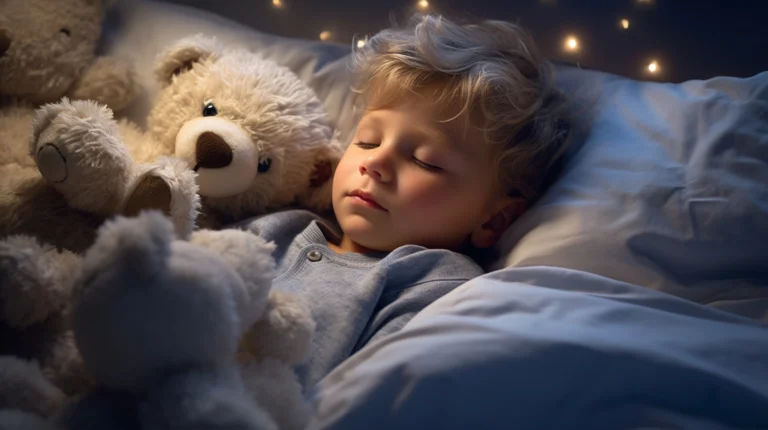Meditation offers three primary emotional benefits for children’s developing minds. First, structured breathing exercises enhance emotional regulation by lowering cortisol and heart rates, enabling children to manage strong feelings more effectively. Second, daily mindfulness practice cultivates deeper emotional awareness, helping kids build a robust emotional vocabulary while strengthening their ability to recognise and process complex feelings. Third, consistent meditation promotes lasting mental peace through measurable changes in brain structure, particularly in regions associated with emotional intelligence and stress response. These foundational skills establish patterns that support emotional resilience throughout a child’s developmental journey.
Key Takeaways
- Children develop stronger emotional awareness and vocabulary, helping them accurately identify and express their feelings.
- Regular meditation reduces stress and anxiety by lowering cortisol levels and promoting calmer responses to challenges.
- Mindful breathing techniques provide immediate tools for managing difficult emotions and stressful situations.
- Meditation enhances focus and attention span, leading to better academic performance and reduced emotional reactivity.
- Consistent practice builds lasting emotional resilience and coping skills that benefit children throughout their lives.
Managing Strong Feelings Through Breath

Emotional turbulence can make daily life challenging for children, but learning to manage strong feelings through breath offers a powerful solution.
Through mindfulness meditation and deep breathing exercises, kids can harness the innate power of their breath to regulate emotions effectively. When children practice breathing techniques regularly, they’ll discover their natural ability to lower heart rates and decrease cortisol levels, establishing a foundation for emotional stability. You’ll find that incorporating structured breathing exercises before significant events, such as tests or bedtime routines, empowers your child to recognise and address emotional triggers proactively.
The systematic implementation of breathing awareness cultivates resilience, equipping children with sophisticated coping mechanisms for future emotional challenges. You can maximize these benefits by encouraging regular practice of stress-reducing breathing techniques throughout your child’s daily activities. Research demonstrates that mindful breathing exercises create a profound impact on children’s ability to manage emotions, particularly during situations that typically trigger anxiety or anger. Through consistent engagement with these meditation practices, your child will develop an arsenal of self-regulation tools that promote emotional intelligence and psychological well-being.
Building Emotional Awareness Daily
Building on the foundation of mindful breathing, daily meditation offers children a pathway to deeper emotional understanding. Through consistent meditation practice, you’ll help children develop a robust emotional vocabulary that enables them to recognise feelings with remarkable precision and clarity.
Implementing mindfulness techniques, such as focused body scans and controlled breathing exercises, creates a structured framework for your child’s emotional development. These practices enhance emotional regulation by increasing grey matter density in critical brain regions, resulting in more measured responses to daily challenges and stressors.
You’ll notice a significant reduction in emotional volatility as your child develops the ability to observe their feelings without immediate reactivity. This enhanced self-awareness serves as a cornerstone for building lasting resilience while providing them with sophisticated tools to reflect on emotions productively.
Strengthening Mental Peace Naturally

The path to mental peace begins naturally through consistent meditation, where children learn to quiet their minds and reduce stress hormones like cortisol. You’ll notice the profound benefits of meditation as your child develops a stronger foundation for emotional regulation and mental health through regular mindfulness sessions.
Through dedicated mindfulness meditation, you can help your child achieve structural changes in the brain that enhance emotional intelligence and improve attention. When you introduce these practices, you’re not just teaching relaxation techniques but enabling your child’s brain to develop enhanced neural pathways that support a calm mindset and emotional stability. The science demonstrates that children who engage in regular meditation experience significant improvements in sleep quality, which further reinforces their emotional resilience.
You’ll witness your child’s growing ability to handle challenging situations with greater composure as their stress hormone levels naturally decrease. Incorporating these practices into their daily routine empowers them to develop lasting emotional regulation skills that will serve them throughout their lives while fostering a more profound sense of inner peace and self-awareness.
Frequently Asked Questions
How Does Meditation Help With Emotions?
Through mindfulness techniques, you’ll master emotional regulation and enhance your focus. You’ll gain powerful stress relief, reduce anxiety, and build resilience. Your self-awareness grows, leading to improved social skills and positive thinking.
What Are the Benefits of Meditation for Children?
Through mindfulness practices, you’ll empower your children with emotional regulation, stress reduction, and improved focus. They’ll develop stronger self-awareness, better manage anxiety, and build resilience while enhancing their social and cognitive skills.
Why Is Meditation Important for Children?
You’ll empower your child through mindfulness practices, boosting emotional regulation and relieving stress. They’ll develop enhanced focus, self-awareness, and reduced anxiety while building resilience, social skills, positive thinking, and creative expression.
Can Meditation Help With Childhood Trauma?
Yes, meditation can significantly help you overcome childhood trauma through mindfulness practices that promote emotional healing, stress reduction, and self-regulation skills. You’ll develop stronger coping mechanisms, boost resilience, and enhance your trauma recovery journey.
Conclusion
When you introduce meditation into your child’s daily routine, you’ll help them develop essential emotional regulation skills and self-awareness. Through consistent practice of mindful breathing techniques, observation of thoughts, and cultivation of inner stillness, you’ll equip your young one with valuable tools for managing life’s challenges. By making meditation a priority in your family’s lifestyle, you’re investing in your child’s emotional wellbeing and long-term mental health.




